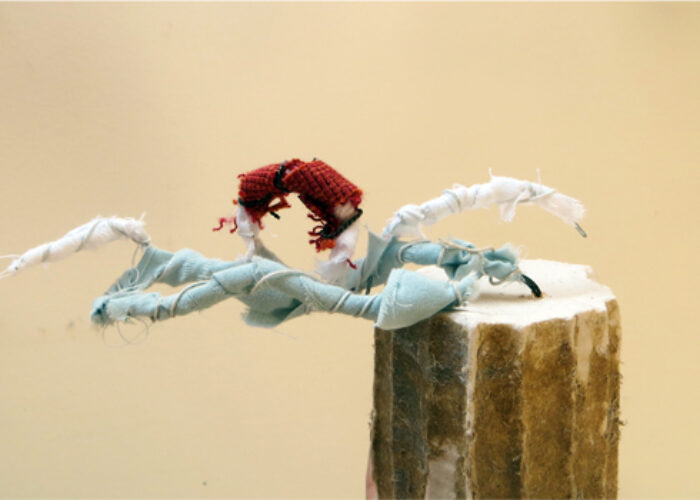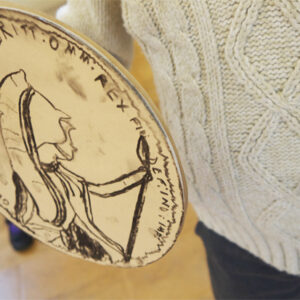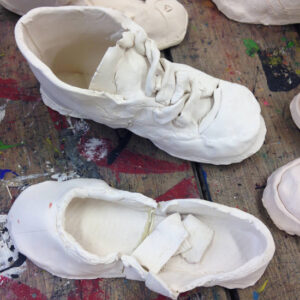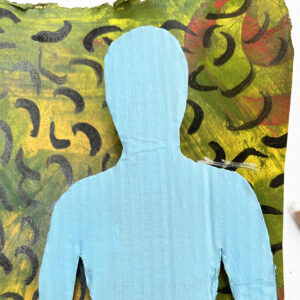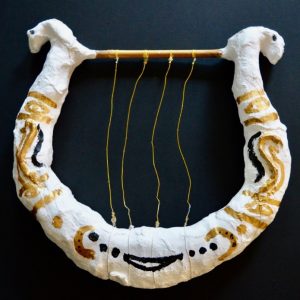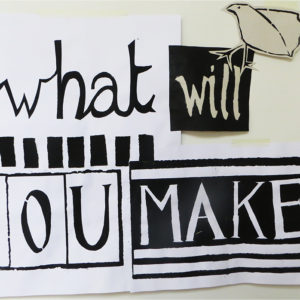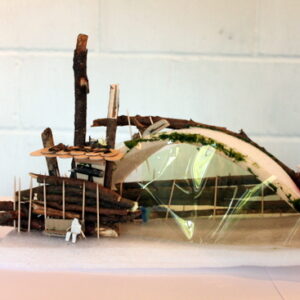AccessArt Olympics: Sporting Sculptures
Explore the project below to help pupils create a sculptural figure inspired by Olympic Athletics.
Sporting Sculptures
Aim: To introduce pupils to the work of sculptors and painters inspired by human form with a focus on athleticism. Pupils will get the opportunity to create figurative drawings and develop their work through to sculpture.
Step 1: Introduce
Begin by introducing pupils to the sculptures made by Rosa Serra, commissioned for the Seoul 1988 Olympics, with “Talking points: Rosa Serra“.
Invite pupils to create “Visual Notes” in their sketchbooks inspired by the information they see.
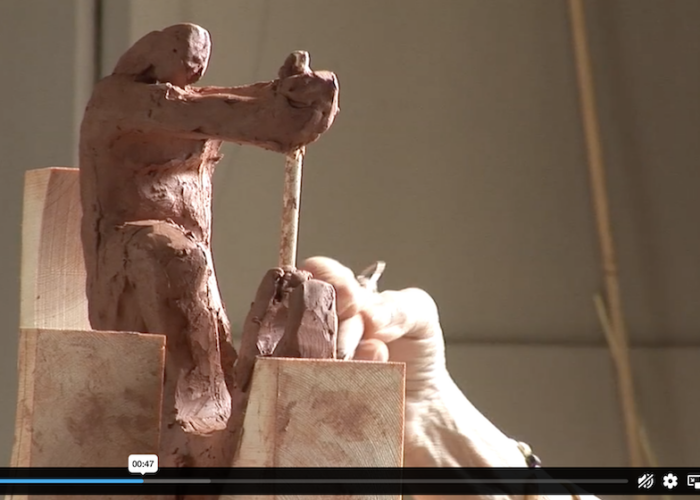
Use “Drawing Source Material: Athletes in Action” material for pupils exploring the human form during sports. In the first instance you might want to pause the videos as suitable points to enable the children to carefully look at the main forms and details.
Encourage close and slow looking by talking as they draw – use your voice to attract their attention to features of the athletes.
Invite pupils to draw what they can see in their sketchbooks. See “Show Me What You See” to find out how to run the guided session.
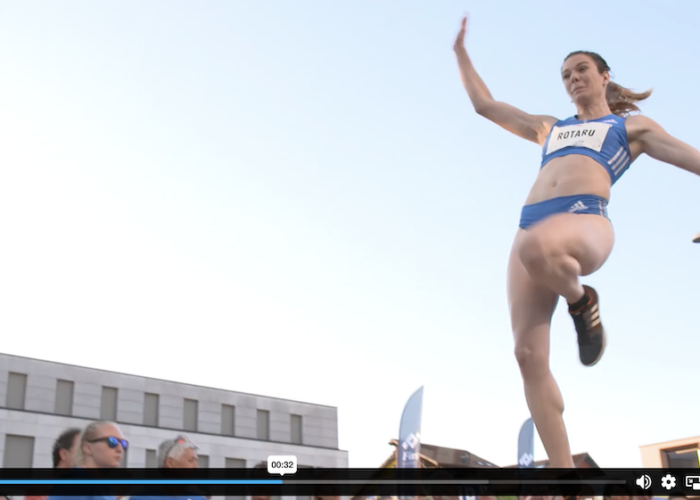
Step 2: Drawing and Sketchbooks
Start the session by introducing choreographer and painter Serge Lifar to pupils using “Talking Points: Serge Lifar“. Use the questions to prompt discussions about how he captures moving forms through line and colour.
Follow on by using the “Exaggerating To Communicate” resource to help children draw from life, and explore how we might use exaggeration as a tool to help us convey the intention of our drawing. Invite children to get into a position relating to a sport they like or they saw in the Drawing Source Material above. You might like to introduce props.
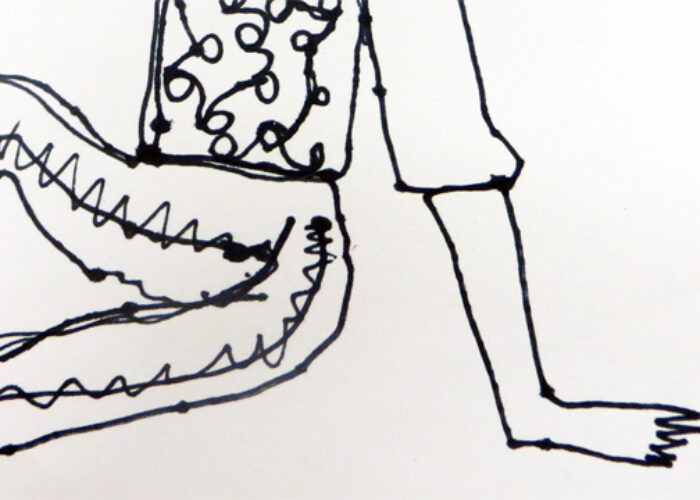
Step 3: Making
Follow on by adapting the “Plinth People” resource, inspired by the work done so far.
Invite pupils to think about a movement they would like to capture in their sculptures and whether this is reflected in a particular sport.
Encourage pupils to think about how they can bring exaggerated form, colour and shape to their sculptures.
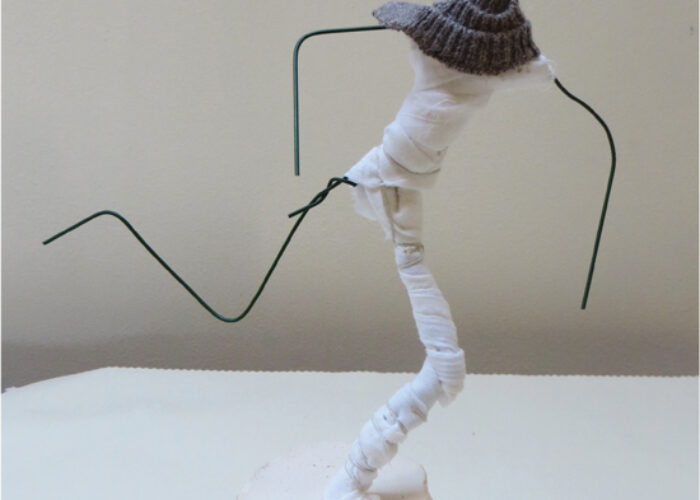
Step 4: Reflect
Use the resource here to help you run a class “crit” to finish the project.
Invite children to display the work in a clear space on tables or on the wall. Recap with them about the exploration – where they started, what they discovered and what they enjoyed.
If you have class cameras or tablets, invite the children to document their work, working in pairs or teams.
